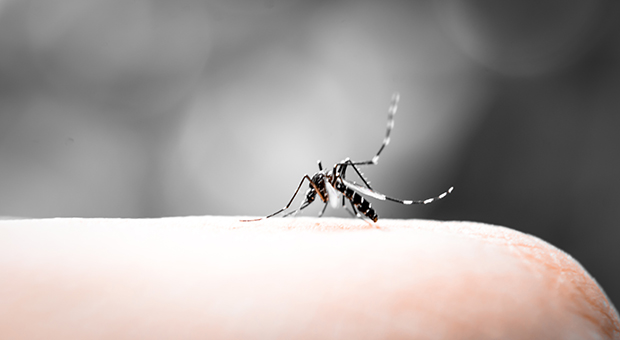The Medical Minute: Understanding who's at risk for Zika virus

If you hadn't heard of the Zika virus, chances are that has changed with recent reports of outbreaks of the mosquito-borne illness in Latin America, and possible cases in the United States – maybe even Pennsylvania.
“It's one of those exotic viruses you never think you'd hear about,” said Wallace Greene, director of the Diagnostic Virology Laboratory at Penn State Hershey Medical Center.
“It's not exactly a big threat,” he said. Only one in five of those who become infected ever develop symptoms, which can include headache, rash, light fever, joint pain and conjunctivitis, or red eye. Many times, people don't even realize they are infected.
The problem is that the virus has been linked to microcephaly, a condition that prevents the brain of a fetus from growing to full size and can produce damaging calcium deposits in the brain.
Greene said research is ongoing to learn more about the lifecycle of the Aedes species of mosquito that spreads the disease and whether or not the virus could be of concern for immunosuppressed patients.
Dr. George McSherry, chief of Pediatric Infectious Disease at Penn State Hershey Children’s Hospital, said there isn't much reason to worry that an outbreak would come to Pennsylvania because the Aedes mosquito doesn't like the climate here. “It needs a place where it is warm all the time,” he said.
Even though those traveling to areas with Zika outbreaks could become infected, McSherry said the principal concern is for pregnant women: “If you're going on vacation while pregnant or if you are planning to become pregnant while you are there, take all the precautions about insect repellent.”
The Aedes mosquito feeds mainly on humans and feeds both during the day and at night, so it's best to stay in accommodations with screens on the windows and doors, and to wear long-sleeved shirts and pants when on outdoor excursions.
Those who return home infected with the virus likely won't even know it unless they develop mild symptoms.
Zika belongs to the same family of viruses as yellow fever, for which a vaccine exists, and dengue, chikungunya and West Nile, the last of which has already been found in Pennsylvania during the summer months.
“I'd worry about those other viruses before I worry about this one,” Greene said. “When you get dengue or chikungunya, you're really hurting.”
To read the latest developments with the virus, including travel advisories, visit www.cdc.gov/zika.
Learn more:
Zika virus: The new kid on the block – Lions Talk Science (blog)
The Medical Minute is a weekly health news feature produced by Penn State Milton S. Hershey Medical Center. Articles feature the expertise of Penn State Hershey faculty physicians and staff, and are designed to offer timely, relevant health information of interest to a broad audience.
If you're having trouble accessing this content, or would like it in another format, please email Penn State Health Marketing & Communications.
